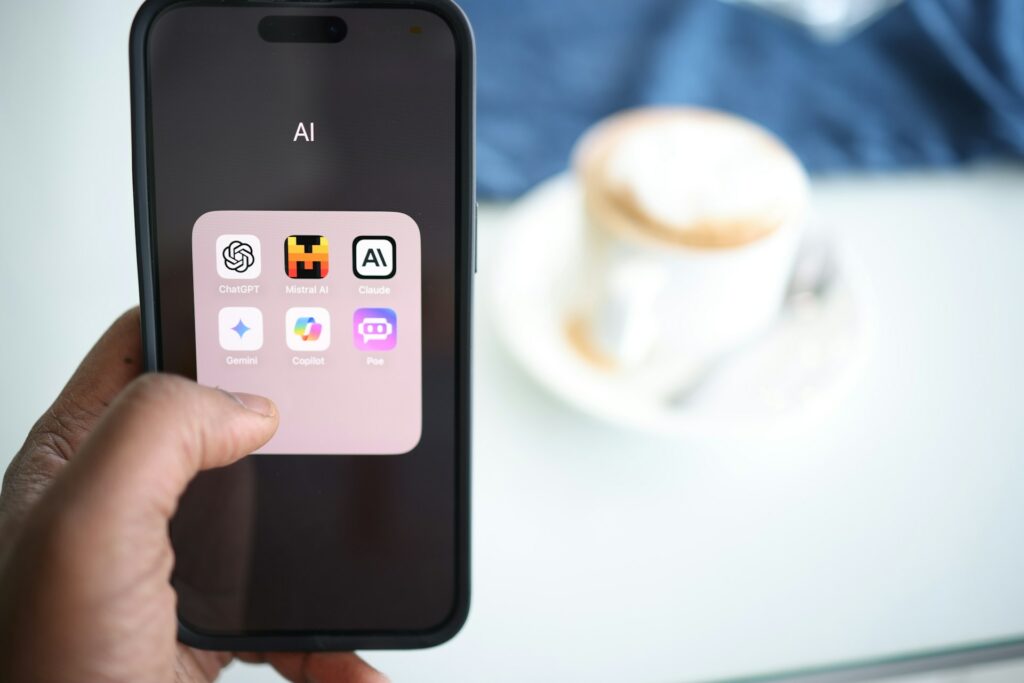This is the AI Assistant Edition of what it’s like to use a smartphone without any applications.

This is the AI Assistant Edition of what it’s like to use a smartphone without any applications.
Think about this: Upon waking up, you immediately grab your phone and go with your day, all without launching a single application. Do not tap on the icons. The use of multiple displays is prohibited. There is no need to open up crowded app folders. Instead, you just verbally or in writing communicate your requirements to your digital assistant, and it will take care of everything for you.
The following is neither a minimalism experiment nor a science fiction fantasy. The fast development of artificial intelligence (AI)-powered smartphones that are centered on intelligent assistants rather than app ecosystems has made this a reality that is just beginning to emerge. The age of scrolling and searching is gradually giving way to a new era of computing that places an emphasis on communication with users.
The question is, however, how does it truly feel? Without applications, how does a phone function? And, perhaps more crucially, is it possible for it to really replace the conventional smartphone experience that we have all been used to?
A Different Kind of Smartphone: The Beginning of its Existence
When you first start using a smartphone without any applications, it seems weird, almost as if something is missing. When you open your device, you are no longer greeted with the rows of bright symbols that were previously there. You will instead be presented with a well-organized and streamlined user interface, which often consists of a text box, a voice prompt, or just a floating assistant that is waiting for your instruction.
In the forefront of this new wave are mobile devices like as the Rabbit R1 and the Humane AI Pin, as well as the ever-evolving ecosystems developed by Apple Intelligence and Google Gemini. They use a simple yet revolutionary approach: rather than going through a number of different applications, you just ask.
Do you want to make a reservation for a ride? Speak up and say, “I need a ride to the airport.”
Need a music to accompany you on your morning run? Please play some uplifting music for me when I am running.
Does your timetable pique your interest? All you have to do is ask, “What’s on my calendar today?”
All of a sudden, events take place without the need to launch an application.
The Surprisingly Refreshing Experience of Living Without Apps
When first considered, this change seems to be a compromise. We have been conditioned to use hundreds of services on a daily basis, including going to the Uber app, scrolling through Spotify, checking Google Calendar, opening Gmail, and accessing dozens of other services. This AI-first experience, on the other hand, is characterized by everything being handled by a single point of contact—your assistant.
The straightforwardness is invigorating. The number of distractions is reduced, the number of alerts is reduced, and there is no longer any need to switch between applications that need permissions, updates, or demand continuous swiping. Instead of functioning as a digital jungle gym, the smartphone is now able to fulfill its original purpose, which was to serve as a smart personal assistant.
The majority of the operations you do, like as checking the weather, sending a text message to someone, making a reservation, or purchasing groceries, do not truly need the use of an application. Simply said, they have to be completed. This is something that the artificial intelligence is able to manage with ease, often drawing from the same resources that applications would, but without demanding your input in ten separate locations.
A Central and Constant Role for the Artificial Intelligence Assistant
Here, the artificial intelligence assistant serves as the operating system. The more you engage with it, the more it will remember your preferences, comprehend your habits, and improve itself.
Rather of navigating through options, you just engage in conversation. “Please remind me to water the plants tonight,” she said. “Please send Sarah the notes from the meeting that took place yesterday.” There is a nice Italian restaurant in the area, and you should make a reservation for two people at seven o’clock.
The helper will eventually start to anticipate your demands as time goes on. It finds out that you prefer walking over ridesharing when the weather is sunny, that you take pleasure in listening to tranquil music in the morning, and that your meetings often go for a long time.
It’s just like having a personal assistant in real life, but digital and in your pocket.
You will gain speed, focus, and the ability to use it intentionally.
Unexpectedly, living a life without of applications does not seem like a step backward; rather, it often feels like a step forward in terms of awareness and productivity. As time goes on, you start using your phone with purpose rather than out of habit. There will be no more accessing Instagram out of boredom or aimlessly skimming through news feeds that you did not request being shown.
The tasks become more efficient and less messy. The amount of visible clutter is reduced. Changing applications or gazing at advertisements is not a waste of time for you. The natural language is the medium through which everything is communicated; what you say or type is what you get.
Furthermore, due to the fact that the assistant is centralized, it is able to integrate your duties across what were previously different applications. An example of this would be saying, “Tell me if I have time to hit the gym before my next meeting.” This would cause it to check your schedule, determine how long your commute is, and even locate facilities in the area. With no need to move between apps.
Control, personalization, and visual comfort are the things that you are lacking.
This arrangement, on the other hand, is not without its flaws.
However, there are users who long for the power and freedom that applications provide. Do you want to go through a variety of possibilities on a site that delivers food? It is more difficult to do that when the assistant makes decisions for you. It is possible that visual learners would have a sense of limitation due to the fact that app interfaces often provide more sophisticated browsing, filters, and visual material than speech-based interfaces are now able to completely reproduce.
Moreover, there is the element of trust. AI is taking over a significant portion of the decision-making process. Should the assistant fail to comprehend your request or draw from a restricted pool of services, it is possible that you may get results that are below your expectations. Apps provide you the ability to micromanage. You can assign tasks with the help of AI, but not necessarily with complete accuracy.
Indeed, for the time being, a great number of services continue to rely on conventional applications. Consequently, even with AI-first phones, there is still the possibility of backend app use, albeit one that is concealed from view.
An Outline of What the Future Holds
Using a smartphone that does not have any applications on it is like getting a sneak peek at what is to come. We are growing closer to a future in which natural language will serve as the universal interface, and robots will be able to comprehend our intentions without requiring humans to go through menus or remember which program performs particular functions.
Apple’s most recent upgrades to Siri and Apple Intelligence are geared on incorporating this idea into iPhones that are more widely available. Google is working to integrate Gemini more deeply into Android. And new businesses are rushing to develop mobile devices that are more like to intelligent companions than they are to little computers loaded with applications.
Apps may, at some point in the future, transform into invisible services that operate in the background while the artificial intelligence assistant gets the spotlight. As time goes on, the smartphone transforms from a screen into a mind-reader, becoming a device that you communicate with rather than scroll through.
Just a few concluding thoughts: less noise, more purpose
A smartphone that does not have any applications is not a sign of having less. It is about having more of what is important, which includes having greater clarity, more attention, and more relationships that are natural. Transforming from typing incessantly to speaking in a coherent manner is a transformation. Getting things done, as opposed to being addicted to the screen, is the first point.
The way forward has been paved, but we are not yet there. And if the early days of AI-first phones are any indicator, the future of mobile technology may not be an app store, but rather a smart, silent voice that is quietly waiting to assist you in making the most of your day.






